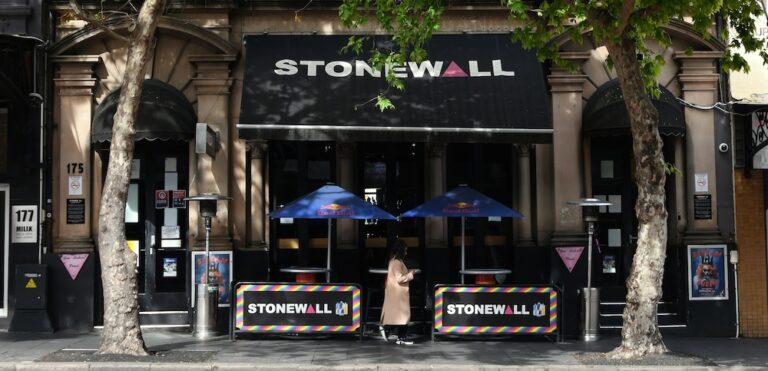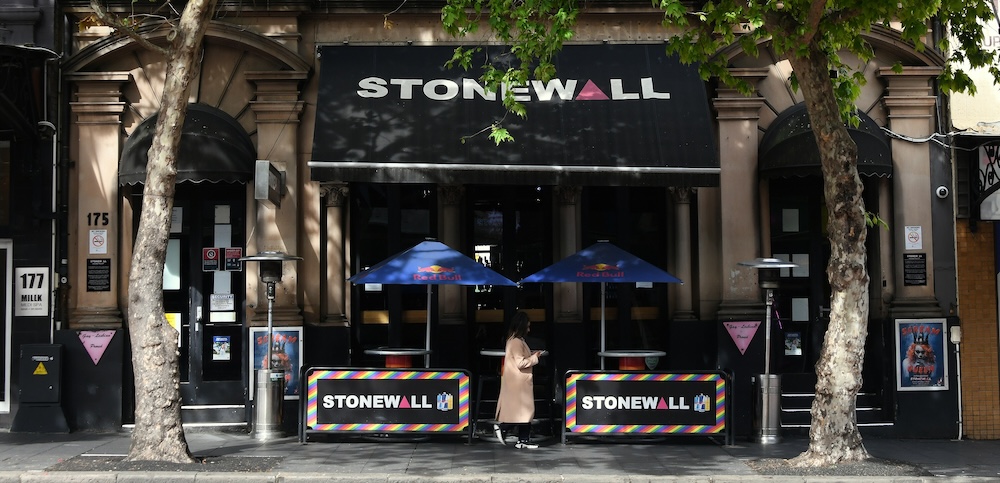
Oxford St to dry out
Alcohol-free zones will soon cover all hotspot areas around Oxford St under plans by the City of Sydney in time for the expected summer increase in alcohol-related crime.
The 42 existing zones in the Kings Cross and Surry Hills police commands expired this month, but will be expanded to include 71 zones under the new proposal to be approved on Monday.
New zones include Brisbane, Goulburn, Pelican, Poplar, Riley Streets and all of the Taylor Square vicinity. These areas will cover all the surrounding streets to the straight nightclubs that have been subject of complaints by police and Sydney Star Observer readers.
Nationally, there is widespread public support for measures to reduce alcohol consumption in public spaces, the proposal by the City of Sydney states.
The Australian Institute of Health and Welfare’s 2004 National Drug Strategy Household Survey of 30,000 Australians indicated that 63% of the population supported the use of alcohol-free areas to address problems associated with the excessive consumption of alcohol.
The alcohol-free classification does not prevent alcohol from being sold at venues in the nominated zones, but gives police extra powers to give move on orders.
Police may also confiscate alcohol in the designated zones in order to reduce the need to manage more serious offences.
In this respect they set and reinforce boundaries for appropriate behaviour and in minimising conflict between different groups in the community; such as commuters, residents, partygoers, people who are homeless and people who drink on the streets, the proposal continued.
Surry Hills and Kings Cross police commanders were in favour of the proposal as it would enable them to tackle alcohol-related crime more effectively.
According to police statistics supplied by the City, five percent of all non-domestic violence-related assaults in NSW occurs in the Kings Cross and Surry Hills Commands.
ACON supported the proposal in its submission to Council, but urged a more comprehensive response.
Regulation of the contexts in which alcohol is used may reduce community and personal harms.
However, there has been little evidence provided to indicate the effectiveness of alcohol-free zones in reducing alcohol-related crime and anti-social behaviour in these areas, where the concentration of venues serving alcohol is high, the health organisation submitted.
ACON would welcome a more comprehensive, evidence-based approach to the issues raised, in order to complement the proposed alcohol-free zones, and urges the City to consider a wider set of responses.
However, the NSW Users and AIDS Association were unequivocally opposed due to the concentration of social support services for disadvantaged communities in the nominated zones, and the potential for increased policing to limit access to health and welfare services.
Have your say: Do you want Oxford St’s back streets to be alcohol-free? Tell us at www.starobserver.com.au.











Elliott! Spot on!
We need a “Straight Free” zone to tackle all problems on the street.
Chris, “Wowser” doesnt exist in the English Language. Its poor slang you use I guess.
what about wowser free zones Oliver???
What about Drug Free Zones??